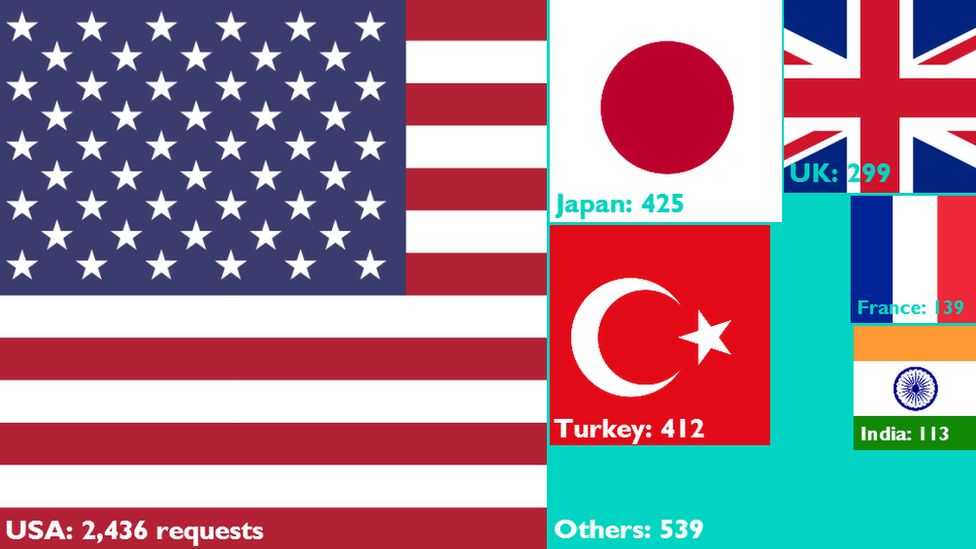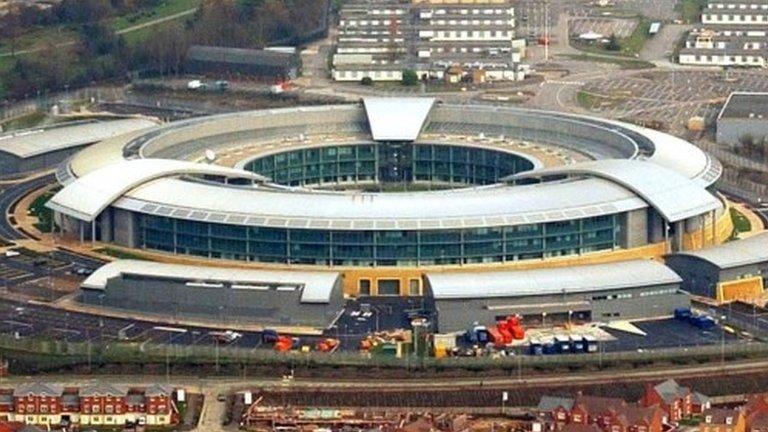Twitter 'snooping' requests double in UK
- Published

Requests for Twitter users' personal information more than doubled in the UK in 2015, according to the company's latest transparency report.
Twitter said UK government agencies and the police made 299 requests for information between January and July, up from 116 in the previous six months.
It makes UK law enforcement the biggest requester of Twitter data in the EU.
Twitter said it had complied with 52% of the requests for information, which could be used to identify a tweeter.
'Transparency'
Twitter has published its transparency report since 2012.
The social network said requests for account information worldwide had increased by 52% - the largest ever increase between reports.

The United States was behind more than half of the requests
It said the United States was behind most of the requests, followed by Japan and Turkey, although the UK remained "a top requester".
Twitter said it had also received nine content removal requests from UK government agencies and the police.
The company said removal requests relate to matters such as defamatory statements or prohibited content. It rejected the nine requests made in the UK.
'National security'
"Where the police are made aware of a case of any one of a broad range of offences capable of being perpetrated via Twitter, such as harassment, incitement to violence, terrorism or hate for example, and the alleged perpetrator is believed to be a UK citizen, police in the UK may make an application to Twitter for information about that individual," said Assistant Chief Constable Richard Berry from the National Police Chiefs' Council.
"We are confident, given its level of engagement with both law enforcement and government, that Twitter's management is alert to the possible misuse of their platform and is committed to ensuring that we can cooperate fully to combat criminal activity."
A Home Office spokesperson told the BBC: "It is absolutely vital that our police and intelligence agencies are able to obtain information from communications companies in certain limited circumstances, set out in law, to protect the public and ensure national security.
"This information helps to disrupt terrorist plots, uncover criminal networks and keep us safe."
'Greater frequency'
One campaign group told the BBC that it should not be the responsibility of private companies to publish transparency reports.
"Thanks to the transparency reports of internet companies, we know police are already accessing data with far greater frequency than many other countries," said Emma Carr, director of Big Brother Watch.
"If the public are to have any confidence that surveillance powers are being used proportionately, then we should not have to rely on private companies to publish this data.
"The government should proactively be publishing their own transparency reports, highlighting exactly how many requests are being made, how often they are refused and why," she said.
- Published12 March 2015

- Published10 February 2015
